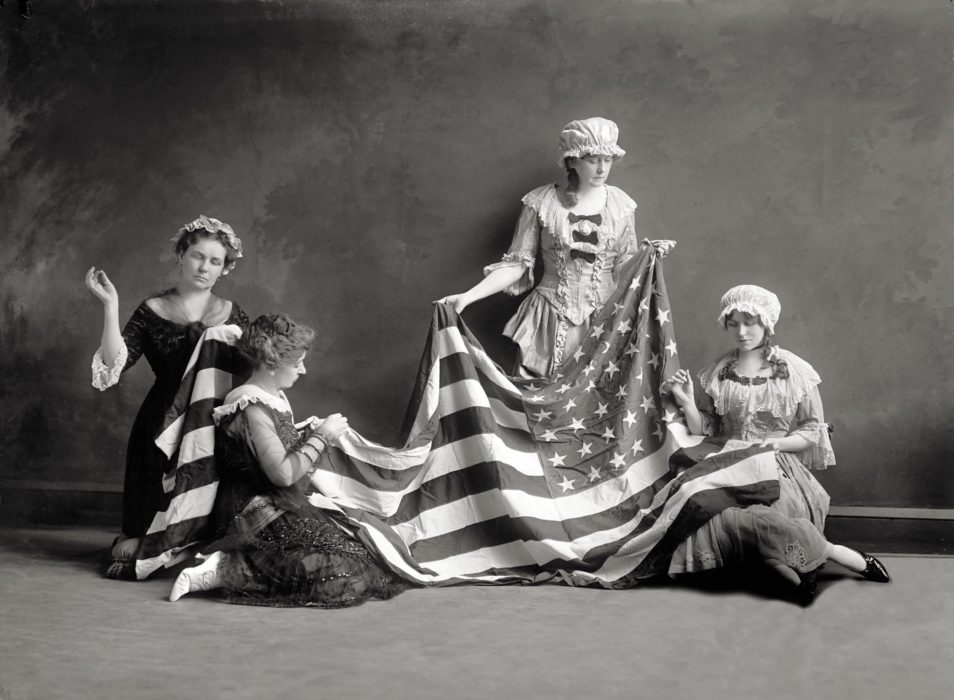“THERE WERE CELEBRATIONS EVERYWHERE,” Mahmúd wrote on July 4, in his chronicle of ‘Abdu’l-Bahá’s trip to America.
Mahmúd-i-Zarqání had traveled to America with ‘Abdu’l-Bahá on the Cedric from Egypt, and accompanied him on his journey across the country as one of his secretaries. On July 4, 1912, Mahmúd was about to get his first taste of a good old-fashioned American celebration: a Fourth of July parade in New York.
New York Mayor William J. Gaynor had sent ‘Abdu’l-Bahá an invitation the week before while he was still in Montclair, New Jersey. ‘Abdu’l-Bahá, who was recovering from exhaustion, replied that he would come if time permitted. His schedule in America involved periods of intense activity where he greeted guests from 7:00 a.m. to well after midnight, or spoke at five gatherings in a single day, alternating with shorter periods of rest. He didn’t say yes to every invitation.
‘Abdu’l-Bahá managed his itinerary rather spontaneously. When Reverend Howard Colby Ives invited him to speak at his Brotherhood Church, ‘Abdu’l-Bahá smiled and said “God willing.” Revered Ives wondered, with humor, “how many engagements for public speakers would be made in our modern world if both parties referred the decision to the will of God before its ratification.”

Not long after the first Americans had traveled to ‘Akká to meet ‘Abdu’l-Bahá in 1898, he began to receive invitations to visit America. But it only became a real possibility after 1909, when the Young Turk Revolution in the Ottoman Empire freed him from prison. Most of these invitations came from Bahá’ís: by 1912 there were about 1,500 Americans who called themselves by that name. They lived in towns and cities from coast to coast, and struggled with many of the same challenges that faced the rest of the country. Chicago’s Bahá’í community had one governing body for men, and another for women. Most Bahá’í events in Washington were divided along racial lines. Therefore, when the requests for ‘Abdu’l-Bahá to travel to the United States became more numerous after 1909, he laid out some conditions.
“In view of the differences among the friends and the lack of unity,” he asked them, “how can Abdu’l-Baha hasten to those parts?” If they wanted him to come, he said, they “must immediately remove from their midst differences of opinion and be engaged in the practice of infinite love and unity.” By March 25, 1912, the day he sailed from Alexandria, Egypt, he had decided that the conditions had been met.
As for the invitation to the parade, ‘Abdu’l-Bahá politely declined. He sent Mahmúd and a few of his other Persian attendants in his place. Mahmúd explains how they were “received with great honor as representatives of ‘Abdu’l-Bahá, and were given seats near the mayor’s chair.”
His description of the Fourth of July parade, which he wrote mainly for the benefit of the Persian Bahá’í communities back home who had never seen such a thing, continues at some length:
“There were people there from many nations including China, Japan, Turkey and India, as well as members of the American military and businesses carrying flags and decorations for the celebration. All of these passed before the mayor and were followed by parades of men, women, boys and girls in gala dress and singing sweetly. As they passed by the mayor’s stand, he spoke to all gracefully and kindly. After the parade it was the turn of the poets and speech-makers.”
On returning from the festivities, Mahmúd concluded that it had been better that ‘Abdu’l-Bahá had made the decision to stay behind. “It was well that He did not go,” Mahmúd wrote, “because the excessive heat and crowds would have been a strain to His strength and health.”






